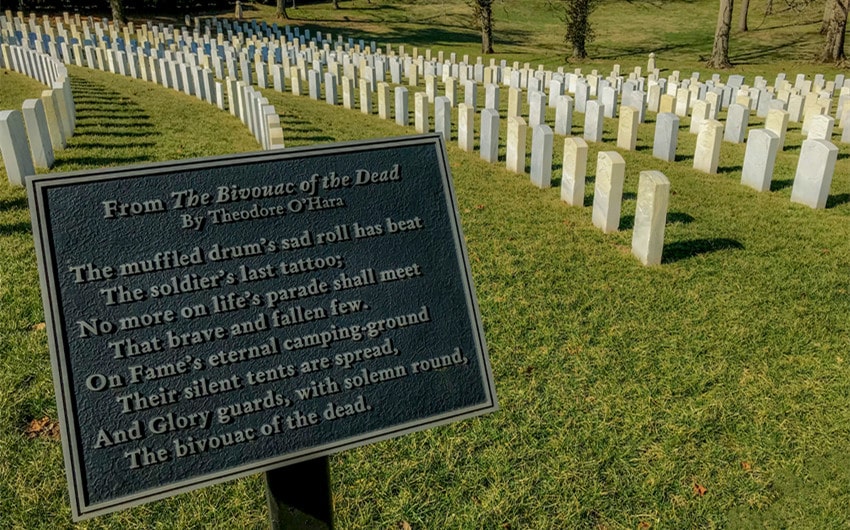Funeral Poems: Heartfelt Words to Honor Those We’ve Lost
Finding the right words to express your feelings at a funeral can be challenging, especially when emotions run deep. Funeral poems can offer a beautiful way to capture the love, grief, and memories shared with those we’ve lost. These poems provide comfort and connection, giving voice to what we often struggle to say during difficult times.
Whether you’re looking for something traditional, modern, or deeply personal, the right poem can touch hearts and honor the life of your loved one in a meaningful way. Here’s a guide to choosing or creating the perfect funeral poem to celebrate their memory.
The Importance of Funeral Poems
Funeral poems play a vital role in memorial services, offering a way to articulate the deep emotions that often feel overwhelming during times of loss. They provide comfort, connect people through shared experiences, and offer words when it’s hard to find your own. Poetry captures the nuances of love, grief, and remembrance, allowing mourners to express the inexpressible and honor the life of the deceased in a personal and meaningful way. Through carefully chosen words, poems can bring solace, evoke memories, and provide a sense of peace to those who are grieving.
Moreover, funeral poems can create a profound emotional connection between the deceased and those left behind, serving as a tribute that reflects the individual’s personality, beliefs, or shared moments. Whether traditional, modern, or spiritual, these poems resonate deeply with listeners, helping to bridge the gap between loss and remembrance. They remind us that even in sorrow, there is beauty in memories and shared experiences, and they help to celebrate the life lived rather than just mourn the loss.

Famous Funeral Poems
Funeral poems can bring great comfort and offer words that resonate during moments of deep grief. These famous poems have been used in many services to honor loved ones, reflecting themes of remembrance, love, and peace. Here are some well-known funeral poems, along with their authors, that capture the profound emotions felt during loss.
1. “Do Not Stand at My Grave and Weep” by Mary Elizabeth Frye
One of the most frequently read funeral poems, this piece emphasizes the idea that the deceased continues to live on in the beauty of the world around us. It offers a comforting message, reminding us that our loved ones are not truly gone, but are present in nature and in our hearts. The poem reassures mourners by encouraging them to find peace in this ongoing presence.
Excerpt: “Do not stand at my grave and weep,
I am not there; I do not sleep.
I am a thousand winds that blow,
I am the diamond glints on snow…”
2. “Funeral Blues” by W.H. Auden
This powerful poem, originally written for a satirical play, became famous for its profound expression of loss and grief. “Funeral Blues” conveys the deep sorrow of losing someone dear, with lines that describe a world that feels incomplete and hollow without the loved one. Its raw emotion makes it a fitting tribute for those struggling to put their grief into words.
Excerpt: “He was my North, my South, my East and West,
My working week and my Sunday rest,
My noon, my midnight, my talk, my song;
I thought that love would last forever: I was wrong.”
3. “Remember” by Christina Rossetti
Rossetti’s “Remember” is a reflective and heartfelt poem that encourages both remembrance and acceptance. The poem asks the listener to remember the deceased fondly but also urges them to move forward with life, even if forgetting seems easier in the face of grief. It strikes a balance between love and letting go, making it a comforting choice for many funeral services.
Excerpt: “Remember me when I am gone away,
Gone far away into the silent land;
When you can no more hold me by the hand,
Nor I half turn to go yet turning stay.”
4. “Crossing the Bar” by Alfred, Lord Tennyson
In “Crossing the Bar,” Tennyson uses the metaphor of a ship crossing a sandbar into the ocean to describe the journey from life to death. The poem’s peaceful tone and hopeful outlook on the afterlife have made it a popular choice for funerals. It reflects a sense of calm acceptance of death, suggesting it’s a transition to a new and peaceful existence.
Excerpt: “Sunset and evening star,
And one clear call for me!
And may there be no moaning of the bar,
When I put out to sea…”
5. “The Dash” by Linda Ellis
“The Dash” is a contemporary poem that focuses on the significance of the “dash” between the birth and death dates on a tombstone. Ellis uses this dash to symbolize how a person’s life is measured not by the length of time they lived, but by how they spent it. The poem encourages reflection on how we live our lives and the legacy we leave behind, making it a meaningful choice for funerals.
Excerpt: “For it matters not, how much we own;
The cars, the house, the cash,
What matters is how we live and love
And how we spend our dash.”
6. “She Is Gone” by David Harkins
This poem, often mistakenly attributed to other writers, is a comforting piece that encourages mourners to celebrate the life of the deceased rather than focus solely on their absence. Harkins’ words gently suggest that although the person is gone, their impact and the joy they brought continue to live on.
Excerpt: “You can shed tears that she is gone
Or you can smile because she has lived.
You can close your eyes and pray that she’ll come back
Or you can open your eyes and see all that she has left.”
7. “Afterglow” by Helen Lowrie Marshall
“Afterglow” is a short yet poignant poem that focuses on celebrating the life of the deceased with happiness rather than sorrow. Marshall’s words encourage a joyful remembrance, urging those left behind to cherish the good times and smile when they think of their loved one.
Excerpt: “I’d like the memory of me
To be a happy one.
I’d like to leave an afterglow
Of smiles when life is done.”
8. “To Those Whom I Love and Those Who Love Me” by Anonymous
This popular poem reassures mourners that the bond of love remains unbroken, even after death. It speaks directly to those grieving, offering comfort and a reminder that the departed is always with them in spirit.
Excerpt: “Grieve not,
Nor speak of me with tears,
But laugh and talk of me
As if I were beside you…”
9. “Turn Again to Life” by Mary Lee Hall
“Turn Again to Life” is a gentle, uplifting poem that encourages the living to continue forward with life while carrying their loved one’s memory with them. Hall’s words are a reminder that the deceased wouldn’t want their passing to be a reason for stopping life’s journey.
Excerpt: “If I should die and leave you here awhile,
Be not like others, sore undone, who keep
Long vigils by the silent dust and weep.
For my sake—turn again to life and smile…”
10. “God’s Garden” by Anonymous
This beautiful poem uses the imagery of a garden to describe heaven, offering comfort by depicting the deceased as being in a place of peace and beauty. It reminds those left behind that their loved one is safe and at rest, cared for by a higher power.
Excerpt: “God looked around His garden
And found an empty place,
He then looked down upon this earth,
And saw your tired face.”
Choosing the Right Poem
Selecting the right funeral poem is a deeply personal and important task that can help set the tone for the memorial service and provide comfort to those in attendance. The right poem not only reflects the personality and spirit of the deceased but also speaks to the emotions of the family and friends gathered. With countless poems available, it’s essential to consider several factors to ensure the chosen words resonate with everyone present. Here are some key points to guide you in choosing the perfect funeral poem.
1. Reflect on the Personality of the Deceased
When choosing a funeral poem, think about the person you are honoring. Were they someone who appreciated classic literature, or did they have a preference for modern, contemporary writing? Did they have a sense of humor, or were they more reflective and introspective? Selecting a poem that aligns with their personality ensures the reading feels authentic and meaningful. For example, a lighthearted poem might be perfect for someone who brought joy and laughter to those around them, while a serene, reflective piece might suit someone who was known for their calm and thoughtful nature.
2. Consider the Tone of the Service
The tone of the funeral or memorial service plays a significant role in selecting the right poem. Some services are more traditional and solemn, while others might be celebratory and uplifting, focusing on the joy of the deceased’s life rather than the sorrow of their passing. If the service is formal and traditional, a classic or religious poem might be appropriate. However, if the atmosphere is more relaxed and focuses on celebrating life, a poem that emphasizes gratitude, happy memories, or even humor might resonate more with the audience.
3. Take the Audience into Account
It’s important to consider the audience when selecting a poem for a funeral. The poem should be relatable and accessible to those attending, providing comfort and connection rather than confusion. Consider the mix of ages and backgrounds in the audience, and choose a poem that speaks to a broad range of people. Avoid overly complex or abstract pieces that may not resonate with everyone. Instead, opt for poems with clear, heartfelt language that captures universal emotions like love, loss, and remembrance.
4. Incorporate Favorite Poets or Themes
If the deceased had a favorite poet, author, or literary style, incorporating their work into the service can add a personal touch that feels uniquely tailored to them. Consider including poems that reflect their favorite themes, such as nature, love, family, or spirituality. For example, someone who loved nature might appreciate a poem that includes imagery of the seasons, sunsets, or the ocean. Similarly, if faith was important to them, a spiritual poem that speaks of hope and peace can be particularly meaningful.
5. Personalize with Family Contributions
Inviting family members to contribute by suggesting poems or even reading the selected piece can make the service feel more intimate and inclusive. You might ask close relatives or friends if they have a favorite poem that reminds them of the deceased or if there are particular lines that hold special meaning. This collaborative approach not only helps in selecting a poem that resonates but also allows family members to feel actively involved in the celebration of their loved one’s life.
6. Adapt or Write Your Own Poem
If no existing poem feels quite right, consider adapting a traditional poem to better fit your loved one’s personality or writing your own. Personalizing a poem with specific references to the deceased’s life, such as mentioning their favorite activities, places, or shared memories, can create a deeply moving tribute. Writing an original poem can feel daunting, but it doesn’t have to be perfect—it just needs to come from the heart. This approach allows for a truly unique expression that captures the essence of the person being remembered.
7. Choose a Poem That Resonates with You
Finally, trust your instincts. If a particular poem resonates with you and brings you comfort, it’s likely to touch others as well. The right poem will evoke the emotions and memories you want to share, helping to express what words alone might struggle to convey. Choose a piece that moves you, that reflects your love and connection with the person you are remembering. In doing so, you’ll honor their memory in a way that feels genuine and heartfelt.







